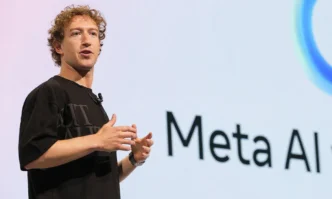Yelp has rolled out a new innovation: AI voice agents designed to transform how restaurants and service providers manage customer calls. These smart agents can answer questions, add guests to waitlists, and manage simple reservations — all without complicated integrations.
Businesses don’t need any tricky setups. Yelp’s AI taps into existing metadata like pronunciation guides, custom greetings, and call forwarding rules to personalize every interaction. For restaurants, the system even connects with their management software, sending reservation details to customers immediately after a call.
The AI agents aren’t just about handling basics. They also block spam calls, generate detailed call summaries, and produce transcripts and recordings for every conversation. If a call becomes too complex, the agent quickly transfers it to a human, ensuring nothing gets lost.
Yelp’s Chief Product Officer Craig Saldanha explained that many professionals work in high-pressure environments where answering every call isn’t possible. Yelp’s AI solution aims to turn those missed calls into real business opportunities.
Yelp Taps OpenAI to Deliver a Smarter Voice Experience
To power this new service, Yelp relies on OpenAI’s Realtime API. Combined with Yelp’s extensive knowledge graph, the agents can hold two-way conversations and follow up on customer questions naturally.
Saldanha believes voice technology itself will soon become widespread. However, he thinks Yelp’s edge lies in the quality of its business data and how smoothly the AI handles real-world customer needs. According to him, these factors will separate leaders from the rest.
Yelp is also committed to keeping its system sharp. It continuously tests new AI models to reduce response times, improve speech recognition, and enhance overall customer experiences. By focusing on these areas, Yelp hopes to offer businesses a major advantage in today’s competitive service market.
Yelp has rolled out a new innovation: AI voice agents designed to transform how restaurants and service providers manage customer calls. These smart agents can answer questions, add guests to waitlists, and manage simple reservations — all without complicated integrations.
Businesses don’t need any tricky setups. Yelp’s AI taps into existing metadata like pronunciation guides, custom greetings, and call forwarding rules to personalize every interaction. For restaurants, the system even connects with their management software, sending reservation details to customers immediately after a call.
The AI agents aren’t just about handling basics. They also block spam calls, generate detailed call summaries, and produce transcripts and recordings for every conversation. If a call becomes too complex, the agent quickly transfers it to a human, ensuring nothing gets lost.
Yelp’s Chief Product Officer Craig Saldanha explained that many professionals work in high-pressure environments where answering every call isn’t possible. Yelp’s AI solution aims to turn those missed calls into real business opportunities.
Yelp Taps OpenAI to Deliver a Smarter Voice Experience
To power this new service, Yelp relies on OpenAI’s Realtime API. Combined with Yelp’s extensive knowledge graph, the agents can hold two-way conversations and follow up on customer questions naturally.
Saldanha believes voice technology itself will soon become widespread. However, he thinks Yelp’s edge lies in the quality of its business data and how smoothly the AI handles real-world customer needs. According to him, these factors will separate leaders from the rest.
Yelp is also committed to keeping its system sharp. It continuously tests new AI models to reduce response times, improve speech recognition, and enhance overall customer experiences. By focusing on these areas, Yelp hopes to offer businesses a major advantage in today’s competitive service market.












